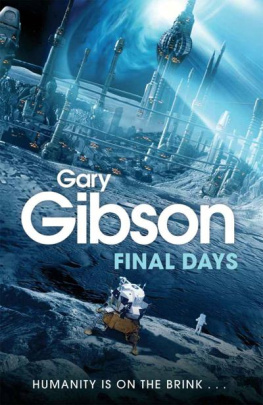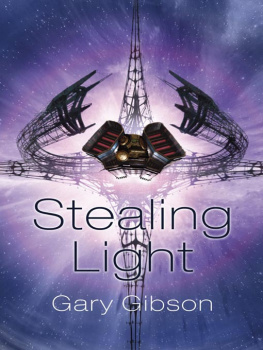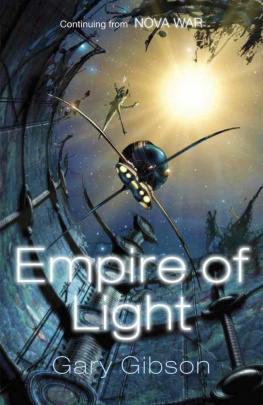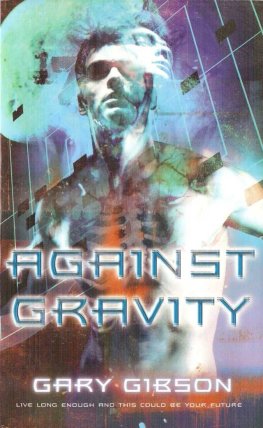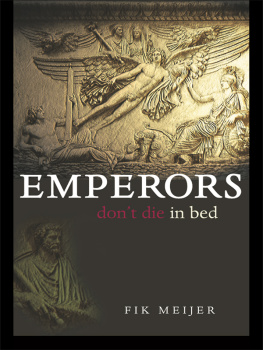Gary Gibson - The Thousand Emperors
Here you can read online Gary Gibson - The Thousand Emperors full text of the book (entire story) in english for free. Download pdf and epub, get meaning, cover and reviews about this ebook. genre: History. Description of the work, (preface) as well as reviews are available. Best literature library LitArk.com created for fans of good reading and offers a wide selection of genres:
Romance novel
Science fiction
Adventure
Detective
Science
History
Home and family
Prose
Art
Politics
Computer
Non-fiction
Religion
Business
Children
Humor
Choose a favorite category and find really read worthwhile books. Enjoy immersion in the world of imagination, feel the emotions of the characters or learn something new for yourself, make an fascinating discovery.

- Book:The Thousand Emperors
- Author:
- Genre:
- Rating:3 / 5
- Favourites:Add to favourites
- Your mark:
- 60
- 1
- 2
- 3
- 4
- 5
The Thousand Emperors: summary, description and annotation
We offer to read an annotation, description, summary or preface (depends on what the author of the book "The Thousand Emperors" wrote himself). If you haven't found the necessary information about the book — write in the comments, we will try to find it.
The Thousand Emperors — read online for free the complete book (whole text) full work
Below is the text of the book, divided by pages. System saving the place of the last page read, allows you to conveniently read the book "The Thousand Emperors" online for free, without having to search again every time where you left off. Put a bookmark, and you can go to the page where you finished reading at any time.
Font size:
Interval:
Bookmark:

Contents
PROLOGUE
ONE
TWO
THREE
FOUR
FIVE
SIX
SEVEN
EIGHT
NINE
TEN
ELEVEN
TWELVE
THIRTEEN
FOURTEEN
FIFTEEN
SIXTEEN
SEVENTEEN
EIGHTEEN
NINETEEN
TWENTY
TWENTY-ONE
TWENTY-TWO
TWENTY-THREE
EPILOGUE
In brief, then, human history can be split into two parts: the period occurring before the destruction of all life on Earth in the year 2235 C.E., and that following those terrible, final days.
At the time, a network of wormhole connections or transfer gates linked Earth via its moon to its interstellar colonies, though few were aware that secret exploratory missions had uncovered the existence of a second, incomparably vast wormhole network, created by aliens we now call the Founders. Certain Founder artefacts were brought back to Earth with devastating results when one was somehow activated, leading to the sterilization of the Earth within days. If not for the deliberate destruction of the Lunar Gate Array, the same fate might also have been visited upon the colonies. It is this period we now call the Abandonment. The Western Coalition, as it was then known, having recognized that the Earth was doomed, initiated a rapid and successful military takeover of every colony apart from Galileo.
The decades following the Abandonment were hard, lean times, but barely half a century later starships carrying new, retro-engineered transfer gates were already being sent out to reconnect the colonies one to another. It is in this period that the template for the modern political order was laid down.
Although the Western Coalition by this time, simply the Coalition had seized political and military control of the colonial governments, the general populations of those worlds had been predominantly drawn from member nations of the former Asian Co-Prosperity Sphere. CoalitionSphere relations were already deeply antagonistic prior to the Abandonment, and became more so, inevitably flowering into a full-fledged revolt a century after the Coalitions takeover.
The uprising proved to be bitter and protracted, but ended with several worlds finally achieving autonomy from Coalition rule. These worlds Da Vinci (now Benares), Newton (now New Samarkand), Franklin (now Temur), Galileo (now Novaya Zvezda), Yue Shijie, and Acamar became known collectively as the Tian Di, and were ruled from Temur by a council of revolutionary leaders numbering nearly a thousand. Although far from being a democracy, this Temur Council provided much-needed stability in the post-revolutionary period.
While the Tian Di and the Coalition co-existed in relative peace over the next several decades, they rapidly diverged both culturally and technologically. The Coalition first renewed and then stepped up its exploration of the Founder Network, despite increasingly alarmed protests from the Temur Council, whose members were afraid of a repeat of the events leading to the Abandonment.
It is undoubted that the Temur Council lacked for effective leadership in the years immediately preceding what we now call the Schism, and the power vacuum following Salomn Lintzs forced resignation as the Councils Chairman offered a clear opportunity for a man as ruthlessly determined as Joseph Cheng. Cheng soon swept to power on the wave of a popular coup, and the promise that he would sever all transfer gates linking to the Coalition to prevent any possible repeat of the Abandonment.
Cheng soon fulfilled his promise and, within days of becoming Permanent Chairman of the Temur Council, the human race was effectively split in two. Those few members of the Temur Council who had openly opposed Chengs rise to power, including, most prominently, myself and Winchell Antonov, were either imprisoned, forced into exile, or executed on trumped-up charges.
It cannot be denied that the period immediately following the Schism was marked by unprecedented peace throughout the Tian Di. The quality of life for our citizens improved by such leaps and bounds that there was, for a long time, little to no demand throughout the Tian Di for moves towards more democratic representation. The one real exception, of course, was Benares a world of limited resources, cruelly under-represented within the Council. It was on Benares that Winchell Antonov, having escaped his imprisonment, founded the Black Lotus organization. Antonov is also credited with giving Chengs Council the less than flattering sobriquet The Thousand Emperors.
At the time of writing, the Council continues to enjoy privileges unavailable to the wider population, most notably the instantiation lattices that grant them effective immortality through mind-state backups and cloned bodies. It is becoming harder for them to justify this exclusivity, now that the hardship of the post-Abandonment period and the violence of the Schism are little more than history lessons to the majority of the Tian Dis citizens. At the same time, calls for greater public participation in the running of the Tian Di are slowly beginning to grow, even on Temur. There are even calls to reunite with the Coalition which, expectations to the contrary, appears from our limited communications with them to have flourished in the intervening two centuries.
Such calls have long gone unanswered. Cheng has meanwhile begun to retreat more and more from public view, surrounding himself with a circle of trusted advisors known as the Eighty-Five, from whom little is heard bar the occasional official pronouncement.
To this day, there is much concerning Chengs past that is dangerous to speak of publicly. The Council has worked hard to alter the facts of the past to suit its vision of our future, making it at times extraordinarily difficult to separate truth from fiction.
I write these words with no certainty that they will ever be read. But I am an optimist, even here in my prison, and it remains my hope that I can present to you, the reader when or wheresoever you might be some approximation of our true history in the following pages.
Excerpt from A History of the Tian Di: Volume 1 From Abandonment to Schism by Javier Maxwell.
ONE
Gabion.
Luc turned to see Marroqui stabbing a finger at him from across the hold, his face dimly visible within his helmet.
Close your visor, Goddamn it, said Marroqui, his voice flat and dull in the cramped confines of the hold. Depressurization in less than thirty seconds. Were landing.
Luc reached up and snapped his helmets visor into place, ignoring the smirking expressions of the armour-suited Sandoz warriors arrayed in crash couches around him. They were crammed in close to each other, bathed in red light.
An alarm sounded at the same moment that the lander carrying them began to jerk with abrupt and sudden violence. Marroqui had warned him about this, explaining that the lander had been programmed with evasive routines designed to reduce the chances of their being shot down by hidden ordnance. Even so, the breath caught in Lucs throat, and he pictured the craft slamming into Aescheres pockmarked face at a thousand kilometres an hour, scattering their shredded remains far and wide. But the shaking soon subsided, and he finally remembered to exhale, although his hands appeared unwilling to release their death-grip on the armrests of his couch.
The lander lurched gently, and the alarm stopped as suddenly as it had begun. They were down.
A ceiling-mounted readout showed the air pressure in the lander dropping to zero. The rumbling sounds of the crafts internal workings soon faded away, leaving Luc with nothing but the sound of his own half-panicked breath.
Next pageFont size:
Interval:
Bookmark:
Similar books «The Thousand Emperors»
Look at similar books to The Thousand Emperors. We have selected literature similar in name and meaning in the hope of providing readers with more options to find new, interesting, not yet read works.
Discussion, reviews of the book The Thousand Emperors and just readers' own opinions. Leave your comments, write what you think about the work, its meaning or the main characters. Specify what exactly you liked and what you didn't like, and why you think so.

